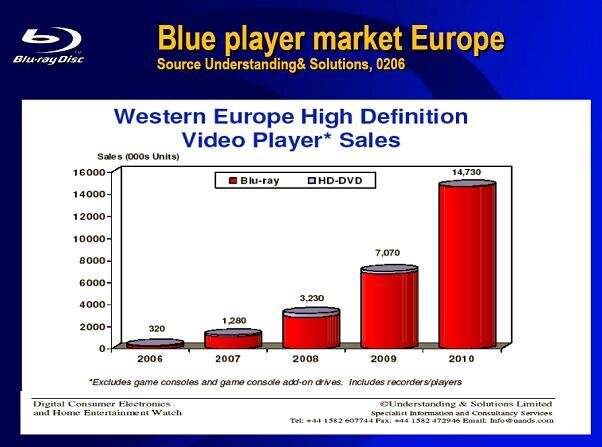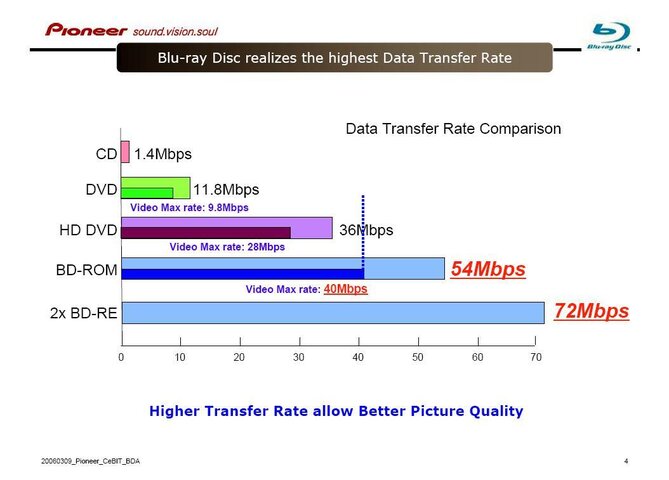GeorgeLV said:
I fail to see what point your trying to make. Those slides clearly demonstrate that Blu-ray supports AVC (aka H.264, aka MPEG4 Part 10) and MPEG2. How supporting MPEG2 in addition to the next generation codes a disadvantage?
You are correct. They support it, but I don't think they are chosing to use it at this time.
Codecs
The codecs used to encode video and audio largely determine the amount of space needed to store the content on the disc. Some or all of the initial movies released in Blu-ray format will use MPEG-2.
The BD-ROM format specifies at least three video codecs: MPEG-2, the standard used for DVDs; MPEG-4's H.264/AVC codec; and VC-1, a codec based on Microsoft's Windows Media 9. The first of these only allows for about two hours of high-definition content on a single-layer BD-ROM, but the addition of the two more advanced codecs allows up to four hours per layer.
For audio, BD-ROM supports linear (uncompressed) PCM, Dolby Digital, Dolby Digital Plus, DTS, DTS-HD, and Dolby TrueHD.
In order to remain backward-compatible, BD-RE (and by extension, BD-R) will by and large support the MPEG-2 codec. For users recording digital television broadcasts, the Blu-ray's baseline datarate of 36 Mbit/s will be more than adequate to record high definition signals. Support for new codecs will evolve as new codecs are encapsulated by broadcasters into their MPEG2 transport streams and consumer set top boxes capable of decoding them are rolled out.



